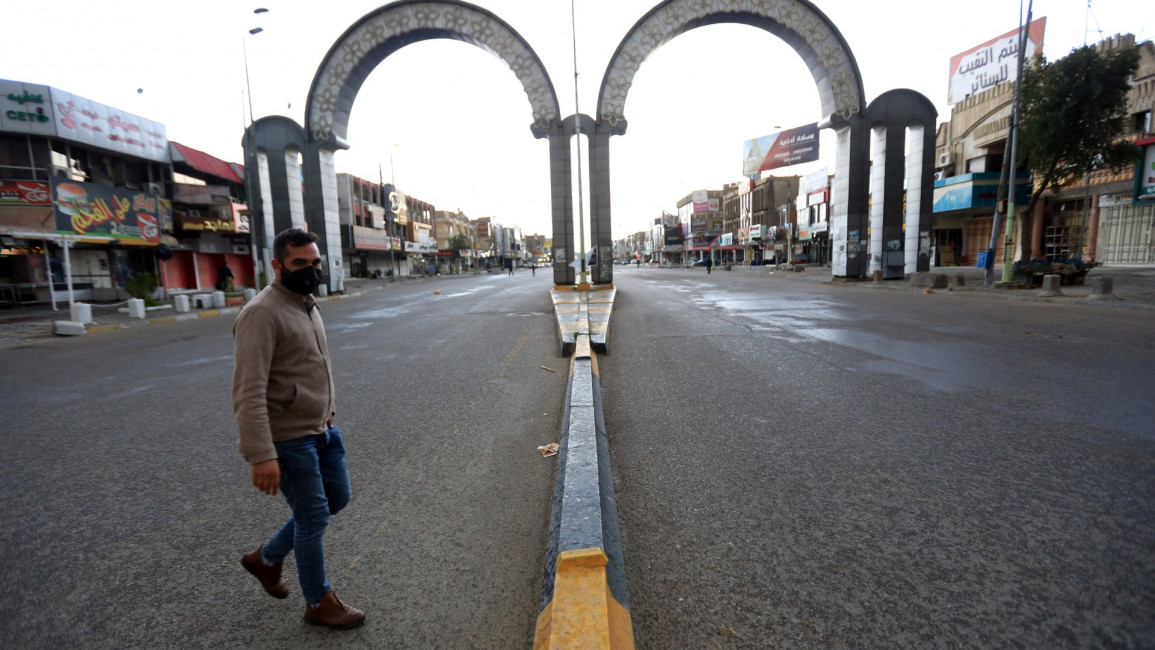Most of Iraq's 18 provinces had so far imposed their own local curfews but the new measures would include the whole of the country, according to a new decision by the government's crisis cell.
Schools, universities and other gathering places would remain closed, as would the country's multiple international airports, it said in a statement seen by AFP.
Many had feared a potential influx of cases from neighbouring Iran, where 1,685 people have died after contracting the COVID-19 respiratory illness, according to the latest official toll Sunday.
Iraq first shut its 1,500-kilometre border with Iran about a month ago and deployed troops to enforce the decision.
It has logged a total of 233 coronavirus cases and recorded 20 deaths, but there are concerns that many more are going undetected as only 2,000 people of the country's 40-million population have been tested so far.
Authorities have struggled to enforce previous curfews.
Read also: Baghdad's four decades of conflict and strife
On Saturday, tens of thousands of Shia pilgrims turned out in Baghdad and other cities in the south of the country to commemorate the death of a revered Muslim imam.
And Moqtada Sadr, a populist cleric with a cult-like following, has continued to hold mass prayers in his hometown of Kufa south of Baghdad and in the capital's densely-populated Sadr City.
Health Minister Jaafar Allawi sent Sadr a personal letter in a bid to convince him to call off his weekly prayers, which present an enormous contamination risk.
Allawi has expressed fears that a wider outbreak would overwhelm the country's health system, which already faces shortages in equipment, medicine and staff after decades of conflict and little investment by national authorities.
Last week, he said he had not been granted his request for $5 million in emergency funds from the federal government.
Iraq is OPEC's second-biggest crude producer, and falling oil prices have put the country in a bind as more than 90 percent of its state budget is funded by oil revenues.

Follow us on Facebook, Twitter and Instagram to stay connected



![President Pezeshkian has denounced Israel's attacks on Lebanon [Getty]](/sites/default/files/styles/image_684x385/public/2173482924.jpeg?h=a5f2f23a&itok=q3evVtko)



 Follow the Middle East's top stories in English at The New Arab on Google News
Follow the Middle East's top stories in English at The New Arab on Google News


